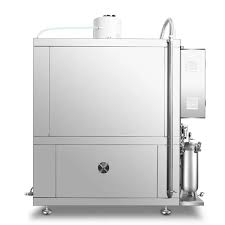In today’s landscape of diesel engine technology, achieving optimal fuel efficiency and environmental compliance is paramount. Diesel Particulate Filters (DPFs) play a crucial role in achieving these goals by capturing and reducing harmful emissions. However, maintaining DPFs in peak condition is essential for their effectiveness and longevity. This is where DPF cleaning solutions come into play as integral components of diesel engine maintenance.
Understanding Diesel Particulate Filters (DPFs)
DPFs are specialized filters designed to capture and trap particulate matter (PM) emissions from diesel engines. These filters are equipped with porous walls that capture soot and other pollutants as exhaust gases pass through. By reducing emissions of PM, DPFs contribute significantly to cleaner air quality and compliance with stringent environmental regulations.
Challenges in DPF Maintenance
Over time, DPFs accumulate soot and ash, which can lead to clogging and reduced engine performance. When a DPF becomes clogged, it restricts exhaust flow, causing increased back pressure in the engine. This not only reduces fuel efficiency but also compromises the engine’s power output and may result in higher emissions. Regular maintenance and cleaning of DPFs are crucial to prevent these issues and ensure optimal engine operation.
Role of DPF Cleaning Solutions
DPF cleaning solutions are specifically formulated to address the challenges of soot and ash buildup within the filter. These solutions utilize advanced detergents and catalysts to effectively dissolve and remove accumulated particles without causing damage to the DPF’s ceramic structure. By restoring the filter’s efficiency, DPF cleaning solutions help maintain fuel efficiency, reduce emissions, and extend the lifespan of the DPF.
Benefits of Using DPF Cleaning Solutions
1. Improved Fuel Efficiency: Clean DPFs facilitate better exhaust flow, reducing engine back pressure and optimizing combustion efficiency. This leads to reduced fuel consumption and operational costs over time.
2. Environmental Compliance: Clean DPFs ensure that diesel vehicles meet emission standards set by regulatory authorities. By reducing PM emissions, DPF cleaning solutions contribute to cleaner air quality and environmental sustainability.
3. Extended DPF Lifespan: Regular cleaning with DPF solutions prevents premature clogging and deterioration of the filter, thereby prolonging its effective lifespan and minimizing replacement costs.
4. Enhanced Engine Performance: By maintaining optimal exhaust flow and reducing engine stress, clean DPFs help preserve the engine’s power output and overall performance.
Application of DPF Cleaning Solutions
DPF cleaning solutions are typically applied during routine maintenance intervals or as part of a troubleshooting process when DPF performance issues arise. The application methods may vary depending on the type of cleaning solution and the specific requirements of the diesel engine manufacturer. It is essential to follow recommended procedures and dosage instructions provided by the manufacturer to ensure effective cleaning and preservation of the DPF’s integrity.
Conclusion
In conclusion, dpf cleaning solutions play a vital role in enhancing fuel efficiency and ensuring environmental compliance in diesel engines. By effectively removing soot and ash deposits, these solutions help maintain the performance and longevity of Diesel Particulate Filters, thereby optimizing engine efficiency and reducing harmful emissions. Integrating DPF cleaning solutions into regular maintenance practices not only improves operational efficiency but also supports efforts towards sustainable diesel engine operations and cleaner air quality. As technologies evolve, the importance of DPF maintenance and cleaning solutions continues to grow, reinforcing their essential role in modern diesel engine management.
Enhancing Fuel Efficiency and Environmental Compliance: A Guide to Diesel DPF Cleaning Solutions

Categories:

